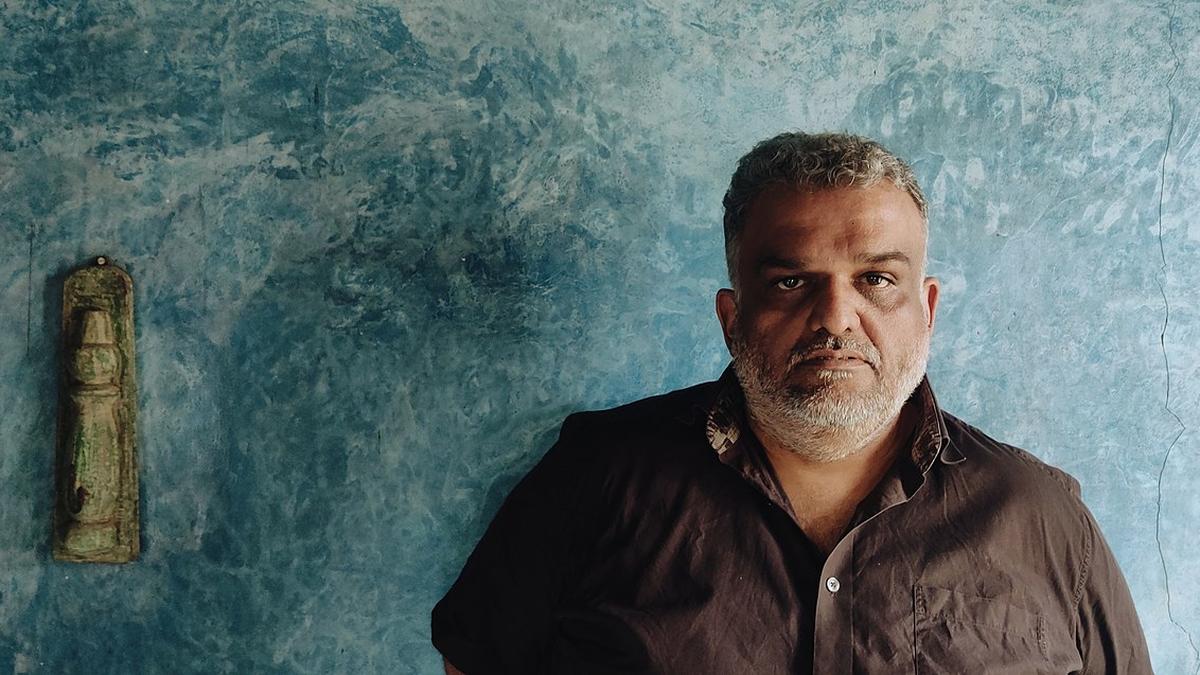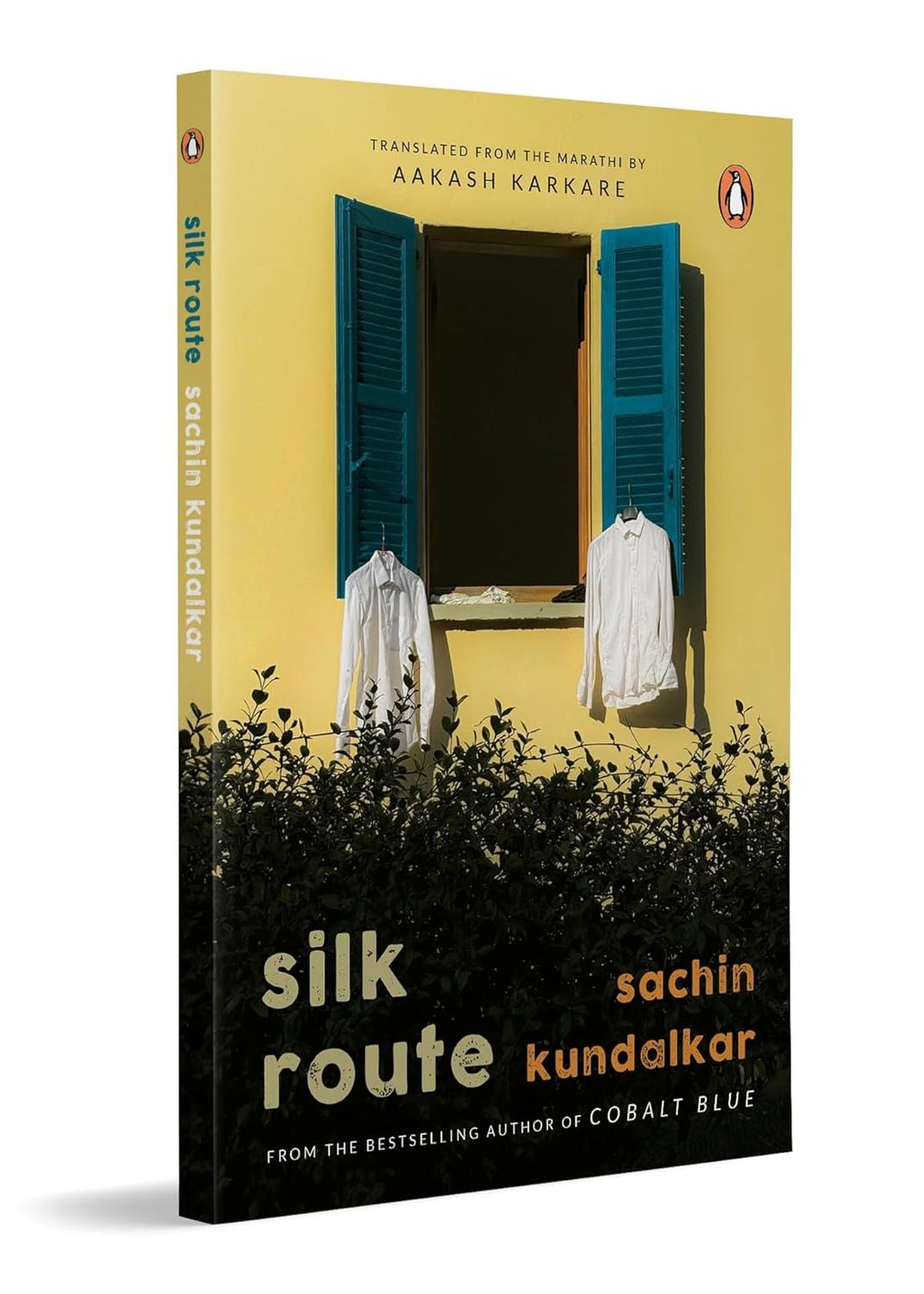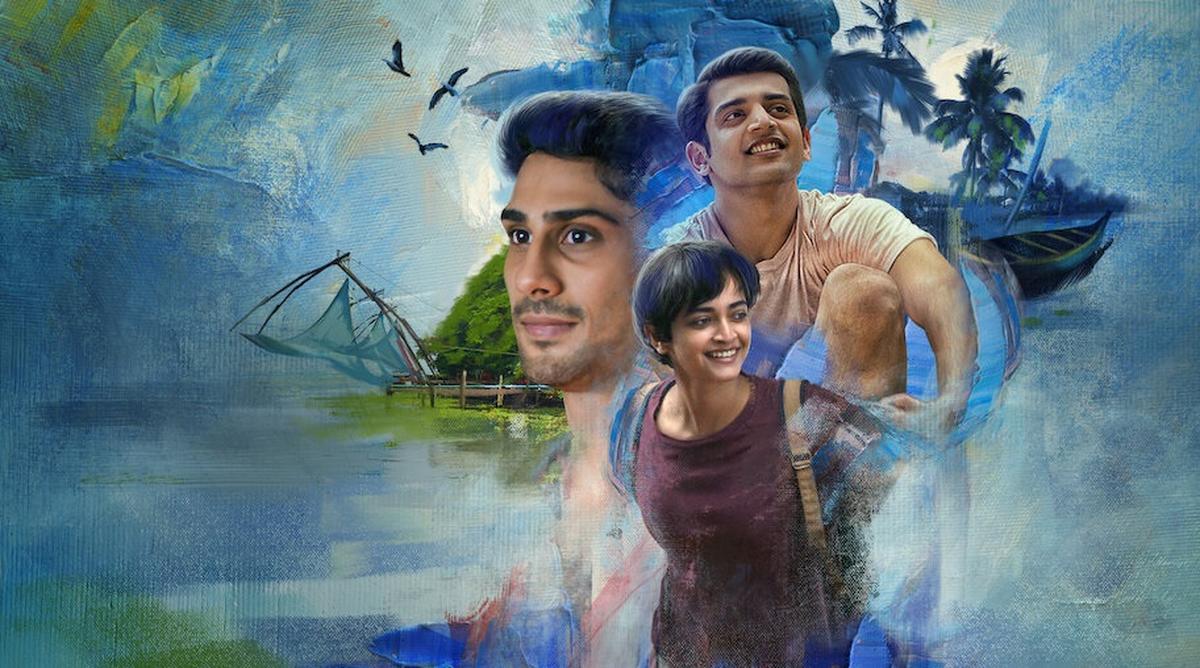
Author Sachin Kundalkar
| Photo Credit: Umesh Vinayak Kulkarni
Silk Route reads as a logarithmic sequel to Marathi writer and filmmaker Sachin Kundalkar’s first and well-acclaimed novel Cobalt Blue. Brother and sister love the same person in both novels. Silk Route begins with the same starting point and curves the trajectory. The sister, who is expecting a child outside of marriage, commits suicide. The brother, Nishikant, is pushed off to Mumbai from Pune. The memory of the dead sister and their common lover, Nikhil, torments Nishikant as he moves from one relationship to another looking for comfort and completion in a society that is repressively heteronormative.
This is a book about the quiet despair experienced by the queer community and the even lesser acceptance of their sexual orientation in a seemingly progressive society — not just in Mumbai, Pune or Chennai but even in the U.K. and the U.S. The aches of loneliness and of separation, pining for freedom from the nights of sleepless darkness can be expressed only in poetry or through the suggestive language of silence.
The title ‘Silk Route’ is open to interpretation. The narrative structure reminds one of the delicate undulating flow of a silk garment. Nishikant, ashamed of his middle-class family, listens to Def Leppard, writes poems, stares at the sky, walks for hours and dreams of his sister’s lover, Nikhil. Then he moves to Mumbai where he meets Shiv Malhotra who has come to the same campus from Delhi. We are taken through Shiv’s life and that of his ambitious parents. Shiv leaves for California. Nishikant goes to London.
There, he meets Srinivas and we are taken through the latter’s life. Srinivas tells us about Jules. Jules leads us to Sophia… the movement is like that of a lazy camera that zooms into one image, explores its every angle and then, figuring out the pointlessness, fades away only to pick out another image and its particulars. That’s the silken flow — unhurried, languorous, carrying the aftertaste of a lethargic intoxication. The story, without a centre, is like that silk fabric that slips through your fingers.
Opinionated narrative voice
While it is imperative to give space and voice to the marginalised, this lack of a centre and the slovenly narration may not entice all readers. The narrative voice, not different from those of its main characters, is overwhelmingly opinionated. The world is clearly at fault. There is an irreverence towards everything. Every heterosexual marriage is a sham. Academics are dull; social workers transform happy people into unhappy ones; village women are cunning; capitalists are sharks; socialists did no work; Paris is overrated as her intellectuals preached nonsense to the world.
A poster of the 2022 film Cobalt Blue, adapted from Sachin Kundalkar’s first novel.
Then there are the prejudiced universal truths: being an intellectual in India doesn’t require being particularly smart or far-sighted or original. Like everyone who studies medicine in India, Nishikant has become lethargic and dumb. The room carries the distinctive scent of naphthalene balls, used by diligent housewives to balance out their lack of worldly intelligence.
The nightmares and fantasies are compelling; but the reference to Blanche and Stella from A Streetcar Named Desire is contrived.
Swinging like a pendulum
The novel is laced with violence without a context or purpose: Jules’ alcoholic father hits his mother with an iron frying pan, killing her instantly. Chimaji is fatally bitten by a snake; Pushkin by a ferocious guard dog. Srinivas spends his spare time killing ants and squirrels; Suhasini feeds poison to stray dogs that howl at odd hours. Jules is shot dead by the police in Mumbai; Shiv is shot dead in the U.S.
Sometimes, it feels as if the novel is demonstrating Schopenhauer’s deeply comfortless, but not unfounded, thoughts on existence, on the will to live: ‘Life swings like a pendulum backward and forward between pain and boredom.’
Kundalkar has been lucky with his translators. Aakash Karkare is almost as good as Jerry Pinto, who translated Cobalt Blue. The cover photo by Anurag Banerjee is intensely dazzling.
This novella ends with the line: “To Be Continued.” The blurb to the book says that this is the first part of a series. We have waited for over a decade for Kundalkar’s second novel. We can wait for the sequel as well.
The reviewer is a Sahitya Akademi translation award winner.
Silk Route
Sachin Kundalkar, trs Aakash KarkarePenguin₹299
Published – October 10, 2025 07:47 am IST


